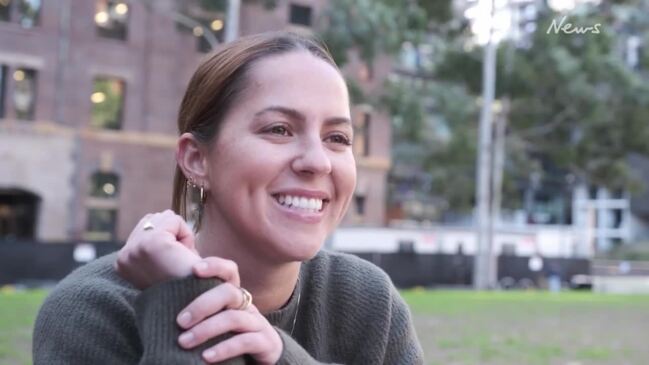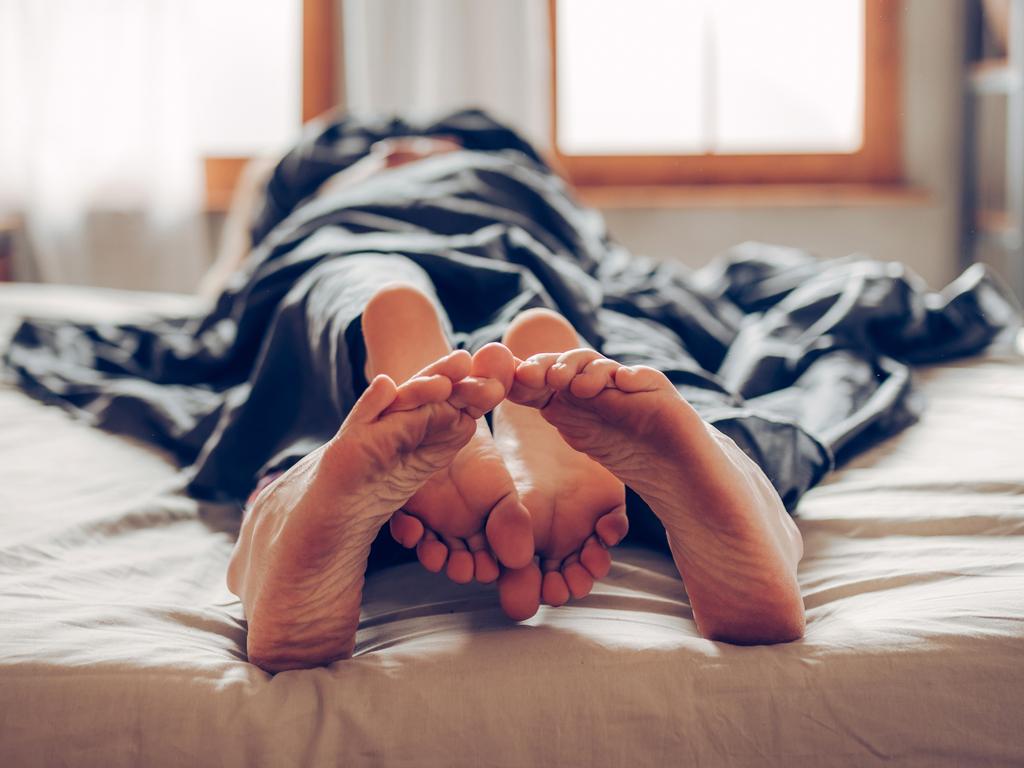Expert reveals what happens to your body when you stop having sex
An expert has revealed exactly what happens to our bodies when we don’t have sex – and it’s not as scary as you may believe.

Having sex can be great for your body, mind, and spirit – so what happens when you’re not having sex anymore?
For a sexually active person, going through a “dry spell” can feel like a massive change for the body and mind.
Some may feel irritable and antsy, while others will just feel overwhelmingly turned on, with no feasible way to relieve it.
However, some people may not feel any different at all – neither missing the sex they were having nor pining for more, Body+Soul reports.
But at what point does a dry spell actually start to change your biology? And does not having sex have a tangible impact on how we feel? Christine Rafe, the sex and relationship expert for sex toy brand Womanizer, weighed in.
How does the body change when you stop having sex?
As much as your body might feel like it’s undergone a big change since you stopped getting your regular fill – the science says it hasn’t.
“While there are recognised physical, emotional and psychological benefits to engaging in solo or partnered sexual activity (including outercourse or non-penetrative sex), this does not mean that there are negative consequences associated with not being sexually active,” Rafe told Body+Soul.


However, we may experience what experts call “deconditioning”, which essentially means becoming less primed for intercourse.
“In the same way we might experience a reduced confidence, muscle tightness and overall deconditioning from not exercising, people who haven’t had sex, or who stop having sex for prolonged periods may experience deconditioning to sexual activities and find that they have muscle tightness or soreness, difficulties in ejaculatory control and a loss of confidence in sexual activity,” Rafe said, though she points out “these are not long-term biological changes”.
The benefits of sex
“There is no substantive research or evidence concluding that there are negative health impacts for someone who chooses to not have sex, or to stop having sex,” she added – however, there are certainly benefits for those who chose to do so.
When it comes to hormones, “the chemicals released during sexual pleasure, whether solo or with others, include oxytocin, endorphins, serotonin and dopamine,” Rafe explained. “These are our happy/feel-good chemicals, and they can improve mood and energy levels [and] increase motivation.”
Similarly, sexual activity and pleasure can help to lower stress by reducing levels of cortisol, “which can impact mood and immune system,” she continued.
For more stories like this, go to bodyandsoul.com.au

When it comes to relationships, for many people, sex is a huge part of cultivating intimacy and closeness with their partner or partners – which, in turn, has knock-on effects that make us feel good.
One area that is backed up by research is “the correlation between higher ejaculatory frequency in adulthood and a lowered rate of prostate cancer in those with a penis, which is generally noted in later adulthood,” said Rafe.
But the good news is that while sex ignites many of these chemical reactions, and can be the cause of ejaculation, “there are other ways that you can promote the same physical, relational and psychological health without having sex”.
How to reap the benefits of sex, without actually having sex
“Not having sexual pleasure doesn’t mean that you can’t experience the same benefits of these chemicals as someone who does engage in sexual activity,” the sexual health expert said.
When it comes to the feel-good hormones, “we can promote the production of these chemicals through lots of other activities such as movement, dancing, massage, meditation, singing, listening to music, laughing, experiencing something new and/or moderately challenging”.
You can also generate these hormones through non-sexual connection, which could include hugging, eye contact, holding hands, having meaningful conversations, and feeling heard.
Similarly, “while sexual pleasure and activity can reduce the stress hormone cortisol which can impact mood and immune system, other ways that you can reduce cortisol include meditation, exercise, sleep, healthy eating and setting boundaries,” said Rafe.
Meanwhile, other forms of relationship intimacy could be non-sexual touch and affection, “emotional connection and anything that supports you in feeling safe and supported by another person,” she adds.
Similarly, when it comes to ejaculation frequency – it’s more than possible to keep that number up without having sex with another person.

A pleasure, not a necessity
While having less sex may feel like a physical and mental adjustment, there’s no proof that it’s bad for you. In fact, it’s very normal for your libido to change as you age.
“It’s very likely that you will experience fluctuations and changes in your experience of desire, arousal and pleasure throughout your life, and this can fluctuate weekly, monthly (particularly for those who menstruate), or more progressively over different life stages including puberty, relationship dynamics, parenthood, menopause, older age etc,” said Rafe.
So if you’re in a dry spell, don’t feel like having sex, or don’t have anyone to have sex with – don’t fear. In fact, the worst thing that can happen from not having sex is feeling distressed about it, which can affect your mental wellness and relationships.

Having sex can be great for your health – it can bolster a couple’s intimacy, and resilience, boost body confidence, lower anxiety and depression, and improve mood.
But you can absolutely activate those benefits in other ways, fostering closeness, mental acuity, and feel-good hormones without sexual touch.
“Sex can certainly be a component of a healthy lifestyle, but it is not essential for you to be healthy,” said Rafe.
“If it is not causing you concern or impacting your life in any adverse ways, then you can absolutely live a healthy and fulfilling life without having sex.”
This article originally appeared on Body+Soul and was reproduced with permission





